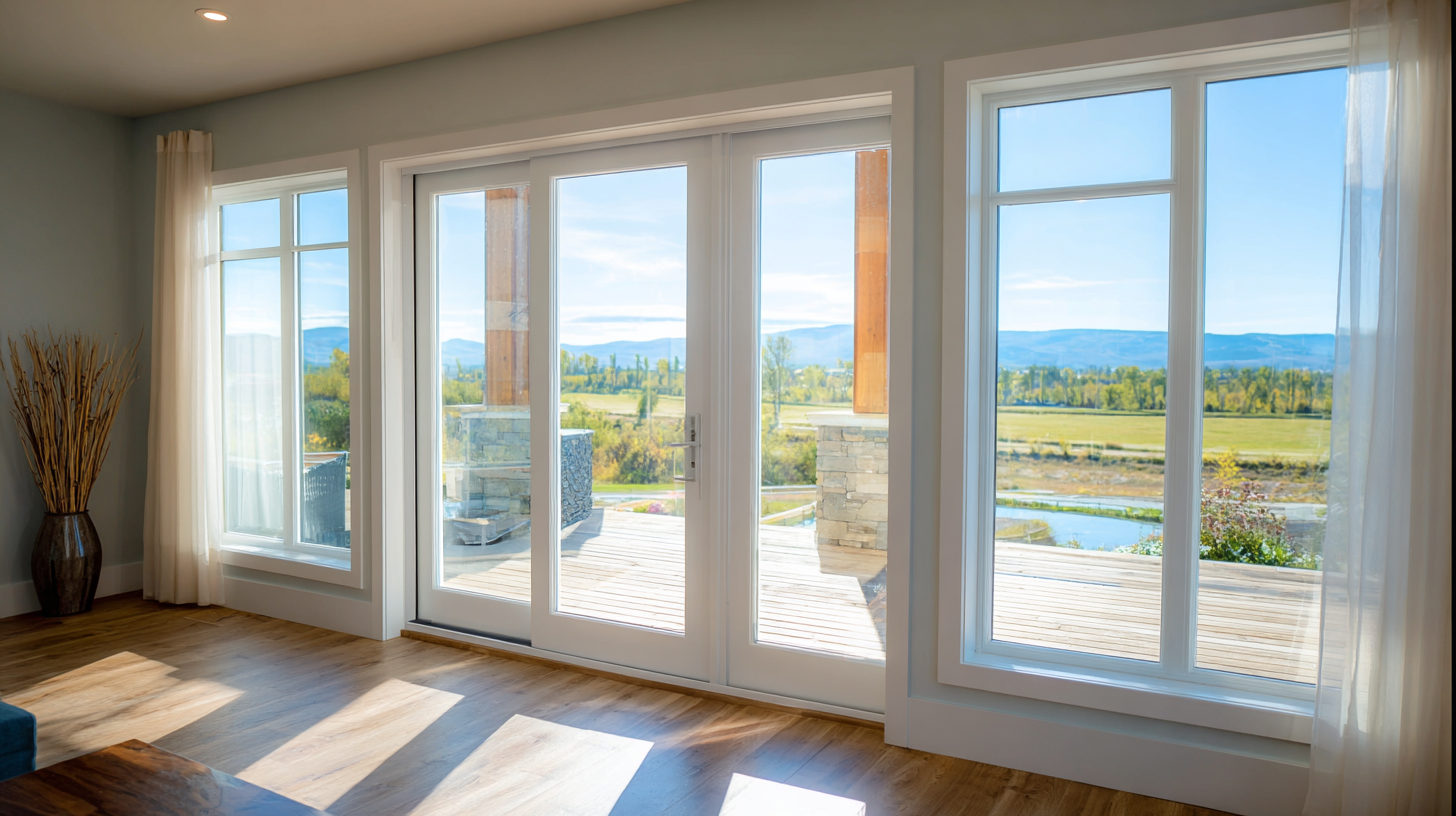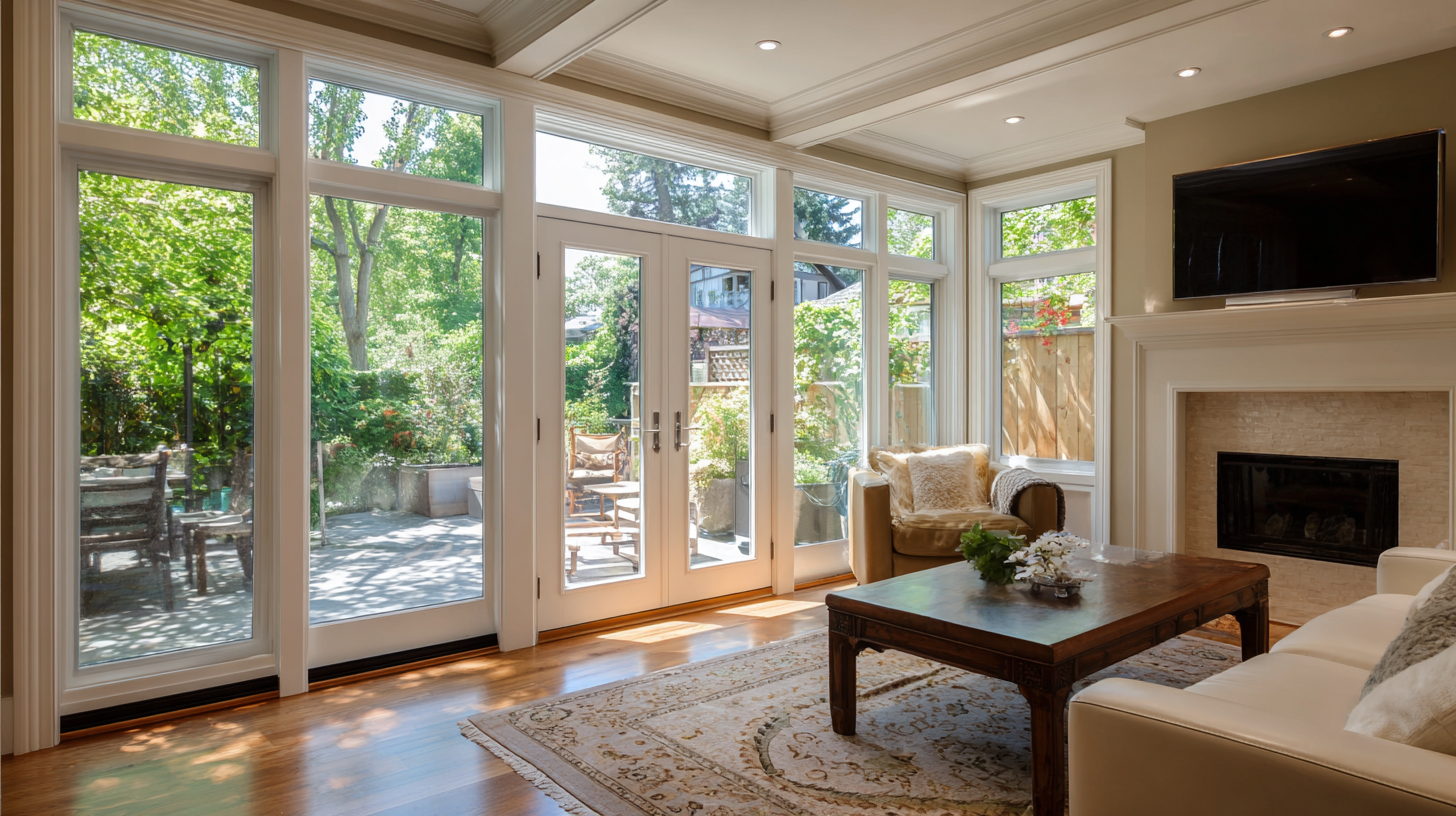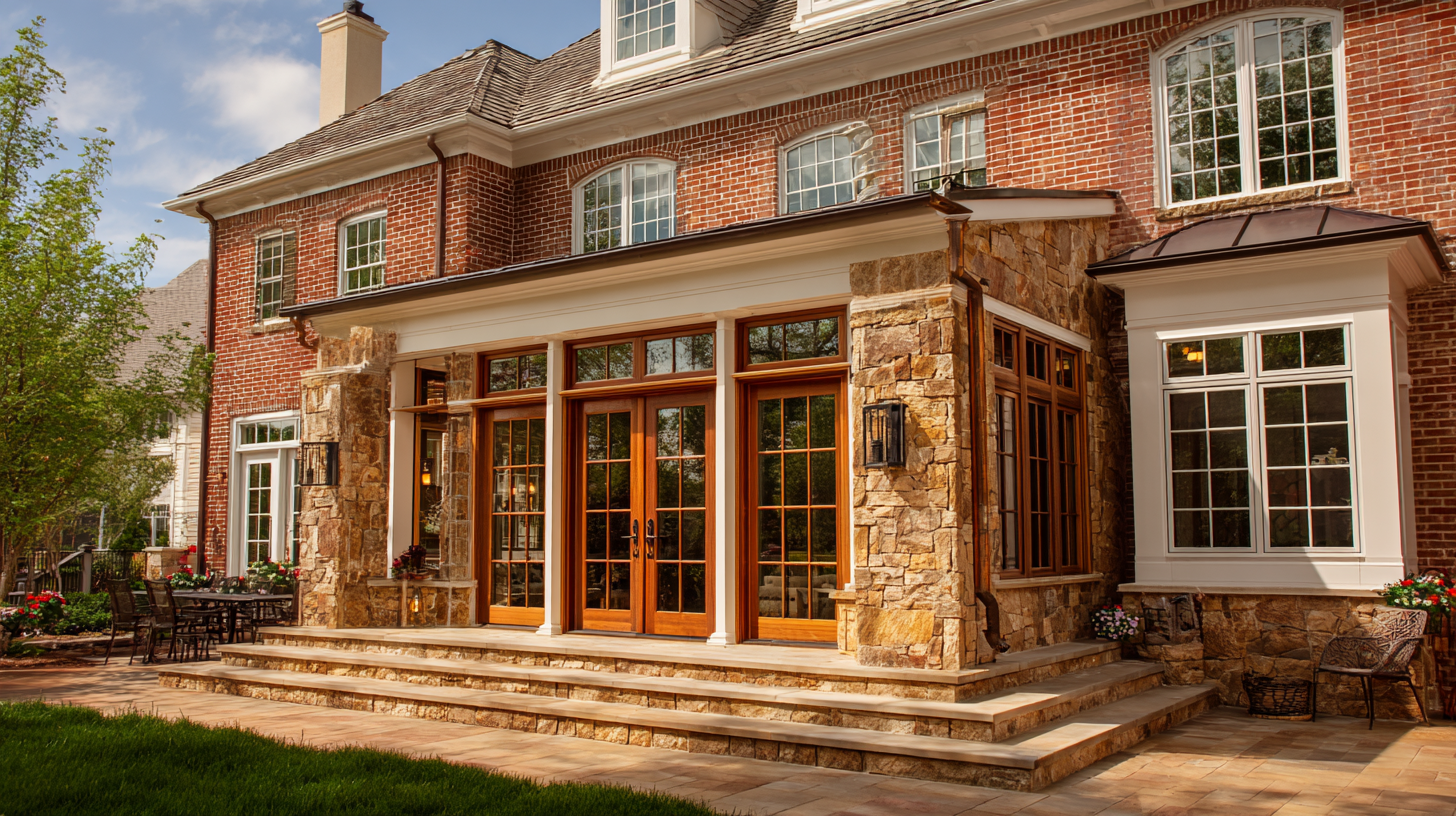Maximizing Energy Efficiency in Your Home with Smart Doors and Windows Solutions
The demand for energy efficiency in residential spaces is at an all-time high, with doors & windows playing a crucial role in optimizing home performance. According to the U.S. Department of Energy, approximately 30% of a home's heating energy is lost through inefficient windows and doors, highlighting the need for innovative solutions.

Smart doors & windows, equipped with advanced technologies such as sensors and automated systems, can significantly reduce energy consumption by enabling homeowners to control natural ventilation and thermal gain effectively. A report from the National Association of Home Builders found that homes with smart energy management systems, including smart doors & windows, can achieve energy savings of up to 25%.
As the market for energy-efficient solutions continues to expand, integrating smart technology in doors & windows presents a lucrative opportunity for homeowners aiming to lower their utility bills while contributing to a more sustainable future.
Understanding Smart Door and Window Technologies for Enhanced Energy Efficiency
Smart door and window technologies play a crucial role in enhancing energy efficiency in modern homes. These innovations utilize advanced materials and automation to minimize energy loss, ensuring a comfortable living environment while reducing utility bills. For instance, smart windows equipped with electrochromic glass can adjust their tint based on sunlight exposure, effectively controlling heat gain or loss throughout the day. This dynamic response reduces the reliance on heating and cooling systems, leading to significant energy savings.
Additionally, smart doors featuring integrated sensors can provide real-time data on air quality and temperature, allowing homeowners to optimize ventilation. With features such as programmable access and remote operation, these doors enhance energy management by facilitating better control over home environments. By investing in smart door and window solutions, homeowners not only enhance the aesthetic appeal of their spaces but also contribute to sustainability efforts, making a tangible difference in energy consumption.
Maximizing Energy Efficiency in Your Home with Smart Doors and Windows Solutions
| Feature | Description | Energy Savings (%) | User Satisfaction (%) |
|---|---|---|---|
| Smart Windows | Automatically tint to reduce heat gain | 30 | 85 |
| Smart Doors | Adaptive insulation technology | 25 | 80 |
| Automated Shading | Adjusts based on sunlight for optimal comfort | 20 | 90 |
| Energy Monitoring | Tracks energy usage of doors/windows | 15 | 88 |
| Smart Locks | Enhances security without compromising efficiency | 10 | 92 |
The Role of Insulation in Smart Doors and Windows for Energy Conservation
When it comes to maximizing energy efficiency in your home, insulation plays a crucial role, particularly in smart doors and windows. These advanced solutions not only bolster the aesthetics of your living space but also significantly reduce energy loss. Proper insulation minimizes drafts, ultimately leading to lower heating and cooling costs. By ensuring that your windows and doors are well-insulated, you can create a more comfortable climate indoors while also contributing to a decrease in your carbon footprint.

Tips: To enhance insulation effectiveness, consider using energy-efficient window coatings or films that reflect heat during summer and retain warmth in winter. Additionally, upgrading to multi-pane windows can provide superior insulation compared to single-pane options. Furthermore, check the weather stripping around doors and windows regularly to ensure a tight seal; replacing worn-out weather stripping can dramatically improve your home's energy efficiency.
Incorporating insulated smart doors not only provides security and convenience but also optimizes energy conservation. Look for doors with built-in insulation features and high R-values, which indicate better thermal resistance. Implementing these smart solutions not only enhances the comfort of your home but also leads to long-term savings on energy bills, making it a win-win for your household budget and the environment.
Quantifying Energy Savings: How Smart Installations Reduce Utility Bills
Smart doors and windows are becoming essential components in maximizing energy efficiency in modern homes. According to a report from the U.S. Department of Energy, properly installed energy-efficient windows can reduce energy bills by an average of 12% to 25% annually. This significant reduction stems from advanced insulation technologies and materials designed to minimize heat transfer, ensuring homes remain comfortable with less reliance on heating and cooling systems.

Moreover, smart installations come equipped with features such as automated shading and climate-responsive openings. Research from the Lawrence Berkeley National Laboratory reveals that utilizing smart window technologies can lead to an additional 10% savings on heating and cooling costs compared to traditional windows. By adjusting to weather changes, these installations optimize indoor climates, ultimately translating into reduced utility bills and decreased environmental impacts. The integration of these innovative solutions not only enhances energy efficiency but also supports homeowners in making sustainable choices for their living spaces.
Comparative Analysis: Traditional vs. Smart Windows in Energy Performance
When it comes to maximizing energy efficiency in your home, the choice between traditional and smart windows can make a significant difference. Traditional windows often feature single-pane glass and basic framing materials, which can lead to substantial heat loss during colder months and excessive heat gain in the summer. In contrast, smart windows utilize advanced technologies such as low-emissivity coatings, dynamic tinting, and insulated frames to better control indoor temperatures. This comparative advantage allows homeowners not only to enjoy enhanced comfort but also to see reductions in their energy bills.
**Tips**: Consider investing in windows that adapt to changing light conditions, such as electrochromic windows that automatically tint when exposed to sunlight. This feature not only helps maintain a comfortable interior but also reduces the reliance on air conditioning. Additionally, seal any gaps around traditional window frames to minimize drafts, which can further enhance energy efficiency.
Incorporating smart doors into your energy-efficient home strategy also holds remarkable benefits. Smart doors equipped with sensors and smart locks can assist in maintaining tight seals and prevent unwanted airflow. By ensuring that your entry points are just as optimized as your windows, you create an interconnected system that amplifies energy savings and overall comfort in your living space. Implementing these solutions can dramatically improve your home’s energy performance while adding value and convenience.
Maximizing Energy Efficiency: Traditional vs. Smart Windows Energy Performance
Exploring Government Incentives for Eco-Friendly Home Upgrades in Smart Solutions
Homeowners aiming to enhance energy efficiency through smart doors and windows can take advantage of various government incentives designed to promote eco-friendly upgrades. According to the U.S. Department of Energy, homes using energy-efficient windows can reduce energy bills by up to 25% annually. Many state and federal programs offer tax credits and rebates for the installation of ENERGY STAR® rated products, translating into substantial savings on both upfront costs and long-term utility expenses.
When considering upgrades, it's crucial to explore local incentives. For example, some states provide up to 30% rebate on Energy Star-rated plus high-performance windows. Additionally, homeowners may find programs offering low-interest loans to finance smart home technologies. Utilizing these incentives not only improves the home’s efficiency but also boosts its overall market value.
Tips:
- Research local and federal programs that offer financial assistance for eco-friendly upgrades before making a purchase.
- Consider investing in automated window systems that can adjust based on external temperatures, further enhancing energy efficiency.
- Keep an eye on deadlines for incentive applications to maximize your benefits.